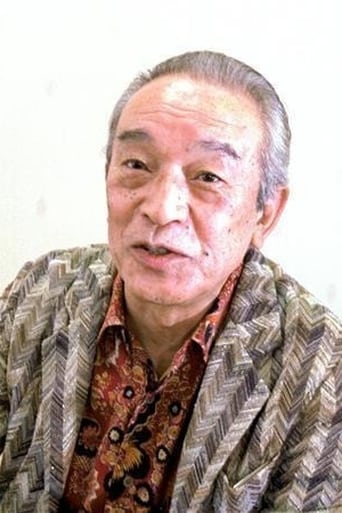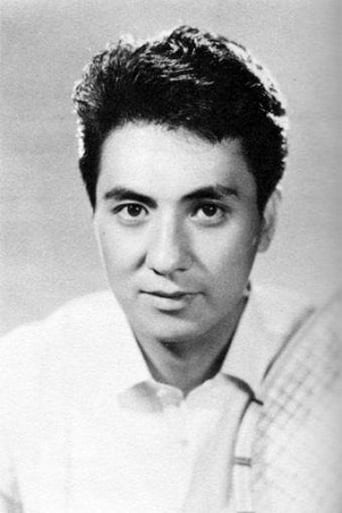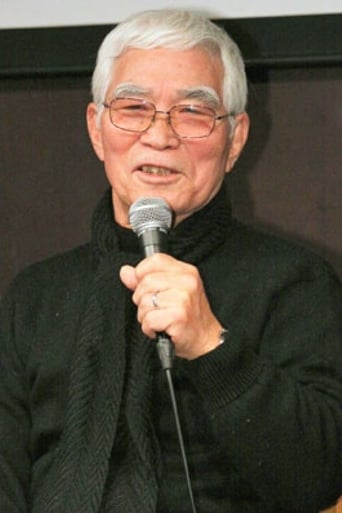BootDigest
Such a frustrating disappointment
SoTrumpBelieve
Must See Movie...
Justina
The film never slows down or bores, plunging from one harrowing sequence to the next.
Billy Ollie
Through painfully honest and emotional moments, the movie becomes irresistibly relatable
erdal-15761
As a person who lives in Turkey, our country debates for taking death penalty back to our laws so i can easily see the similarities here. The movie shows us that in whatever case, the death penalty is absolutely not the correct solution. The reason why we discussing about the death penalty is the increasing numbers of rapes and murdering babies, like the movie, the man is charged by raping 2 girls. As we can see in the movie, the execution does not harm the people who has broken the law it also harms the people who runs the execution themselves. First in the movie there is room full of mem who really want to execute him and enjoy the situation, but by the time passes they all come to conclusion that it kills their souls and this is a bad idea to punish people.It's all i have to say for the movie and i would like to also add something,an advice, the governments should teach children in good way and make them avoid the violence that's the only way to get rid of these crimes.
Meganeguard
In the year 1968 student movements throughout the world were trying to change their respective societies. In America, in France, in Japan, etc. students and those of similar minds took to the streets to change the old order. Activities by the student organizations the Zengakuren, 全学連, and especially the Zenkyoutou, 全共闘, are readily available to readers of the writers Oe Kenzaburo and Murakami Haruki whose viewpoints differ, but who give the reader a detailed account of the student movement. During these years of protest, the Japanese film industry suffered a number of financial setbacks so the old guard of film directors, such as Kobayashi Masaki and Kurosawa Akira, rarely produced films and directors of pink films ruled the roost. However, some of these directors, although their films also contained sex and violence, tried to produce films that had more of a message. One of the most prominent of the Japanese New Wave directors during this time period was Oshima Nagisa whose films The Man Who Left His Will on Film, Violence at Noon, The Ceremony, etc., were quite acerbic towards the establishment. While his films are considered a bit heavy-handed by a number of film critics, Oshima, like Imamura Shohei, was quite concerned with people belonging to the lower strata of society especially during a time period in which they were often left behind by Japan's rapid growth. In his film Death by Hanging Oshima points his camera towards Japan's Resident Korean population.Death by Hanging opens with the Narrator, Oshima Nagisa, asking the audience if they support the death penalty and he goes on to say that more than seventy percent of the Japanese public supports the death penalty. However, he then asks the audience if they have ever seen the inside of the death chamber itself. We, the viewers, then receive a step by step introduction to the environs of the death chamber and we are treated to the hanging of a condemned Korean man who raped and killed two Japanese women. However, there is a problem and that problem is that the body of the condemned man R refused to die. Obviously being that someone who is hanged is supposed to die the prison officials are not sure what to do. It is decided that they will hang him again after he comes to, but after he does he has amnesia. Believing that it would be wrong to hang a man without knowledge of his crime, the prison officials try to recreate the rape and murder scenes for R so that his memory will be revived in order for them to execute him once more. However, this task is not easy….Filmed in 1968 only three years after Japan reopened relations with South Korea and ten years after thousands of Koreans were repatriated to North Korea, Death by Hanging details a number of the discriminations faced by Resident Koreans during the 1960s: poverty, unemployment, poor educational opportunities, and a general sense of disdain by the Japanese populace, although, of course, this was not universal. Death by Hanging also attempts to show the political ideologies of the Resident Koreans, mainly those affiliated with North Korea, in the personage of R's "sister" who says that R's crimes and violence in general is the only way for the Resident Koreans to fight back against Japan. However, after his first execution, R does not seem to still hold onto these same views. A truly bizarre film with some dark humor, Death by Hanging should be watched by those who have an interest in Japanese New Wave films or minority issues in Japan
tedg
One of the benefits of writing film comments is that readers will sometimes send me recommendations. If that were the only benefit, and if this were the only recommendation I would get, it would be worth it.By reading the comments, you may think that the main value of this film is a damning polemic on capital punishment plus a perhaps more powerful examination of (Japanese) racism toward Koreans. It is those things and powerfully so. But the manner in while the narrative unfolds deserves experiencing even if Japanese politics of the sixties doesn't interest you.Its construction is worth your effort. It starts as a documentary of a hanging. The man is hanged but apparently survives. He has lost his identity. In order for his re-execution to be legit, they have to reintroduce him to the crime. Though all the acting is done in the execution room by the executioners (including a doctor, lawyer and Christian priest), the viewer enters shifting imaginations and we are taken on a series of conversions.At one end, the beginning, we have the execution witnesses following the re-enactors from scene to scene, the re-enactors, executioners, taking roles in the drama. The scenes become more real until the murder where an executioner gets carried away and kills an innocent woman.Then things shift more radically and all sorts of complex folds appear simultaneously. Some viewers "can see" and others not. The murdered girl comes out of her coffin to become a competitor to write what we see, combination lover, writer, and sister, shifting from Japanese to Korean.You need to ignore the preaching because it gets in the way. Perhaps the second time around pay attention to it — it maps quite well onto America and its blacks, though there's far less brutality, length of history and institutionalized racism in the US case. But as I say, this all has less value than the way the thing is put together.While watching this, you will notice that the steps of narrative shifting are of different types, radically different types — as varied as you get in "Citizen Kane," or "Annie Hall." They slip sideways in unexpected directions. But the shifts occur at roughly the same frequency and seem at about the same distance.This narrative shifting does serve the political agenda, in part because that agenda is simple. Something that seems invisible in one maturely rationalized perspective, become obvious when the perspective is shifted a bit away from all the storied protections.I think I'm putting this on my list of essential films. Ted's Evaluation -- 4 of 3: Every cineliterate person should experience this.
sharptongue
Oshima is a director who usually leaves you in no doubt about what he thinks, but he goes all out here. This film is a strong polemic against the death penalty as practiced in Japan. The condemned man fails to die, and those in the death chamber panic and wonder what to do. After about five minutes of narration (by Oshima himself), the characters gear into action, using Oshima's chosen method : black farce. This is a very funny film, and all the more so because it confronts some very edgy stuff and often crosses the line to outrage. Oshima, as he often does, attacks Japan's sacred cows head on. As well as the death penalty, he deals with prejudice against Koreans, rape, politics, respect for authority and much more.The acting is excellent, particularly the Korean who plays the condemned man. His calm poise provides an excellent balance to the mania of the officials around him, as they try to make him remember who he is and what he's done.Strong stuff, warmly recommended.






